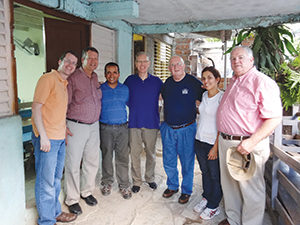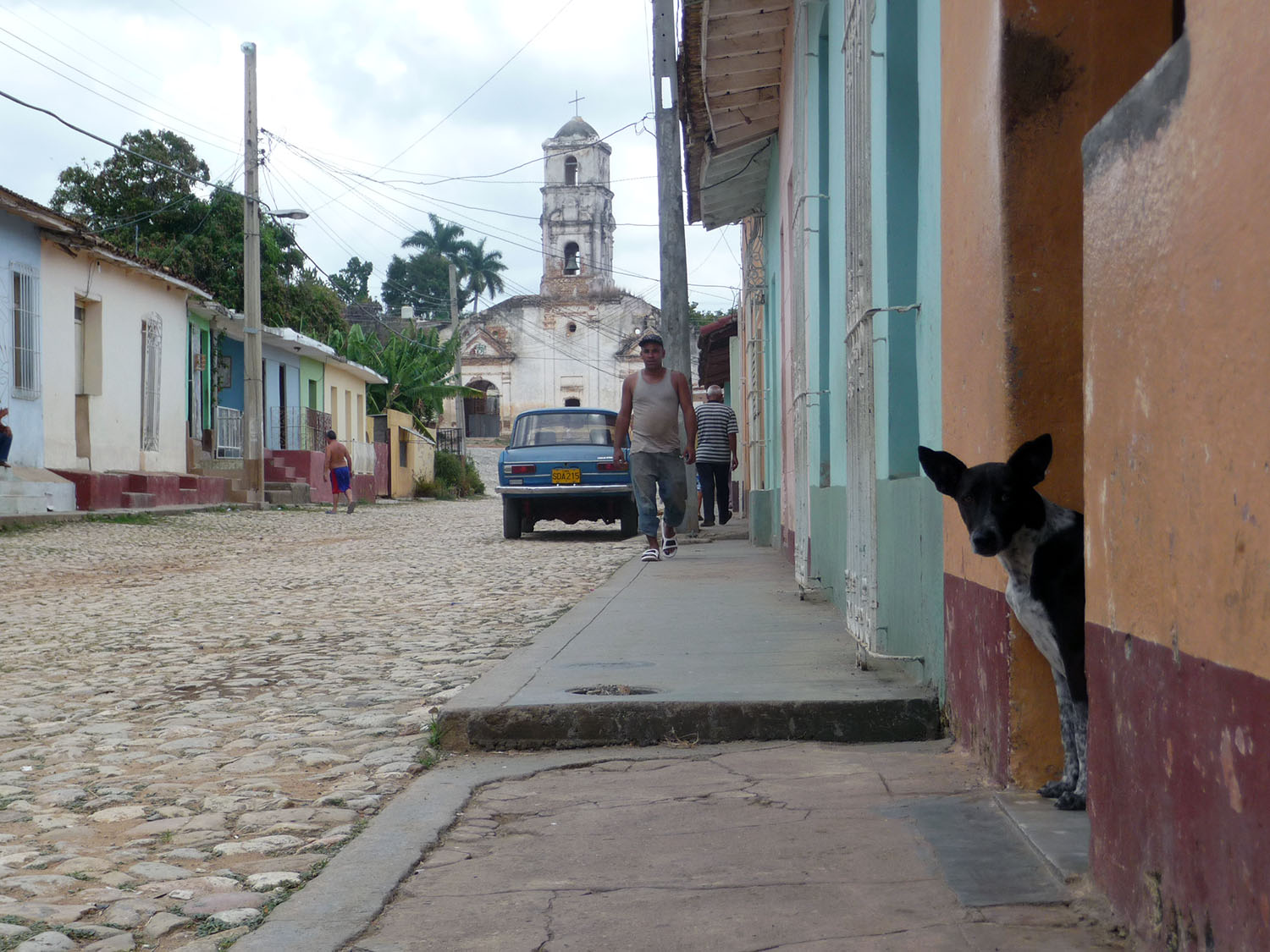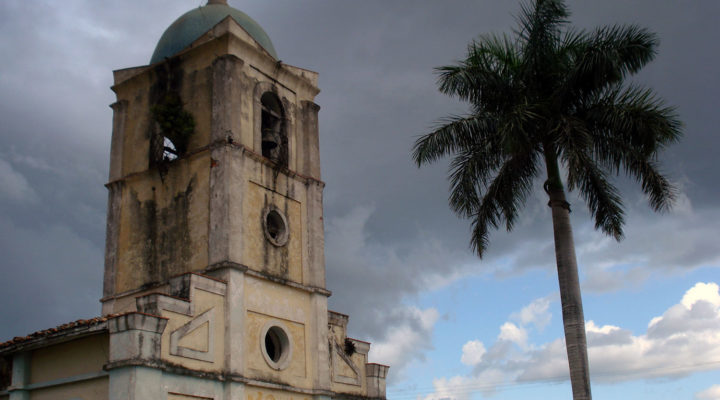The level and frequency of United States-based Christian activity in Cuba has been rising since the normalization process between the two countries began in late 2014.
The Cooperative Baptist Fellowship of Florida has been building on existing relationships with Baptists and other Christians on the island, joining the swelling ranks of churches and ministries from all manner of denominations going to Cuba.
Among the latest to test the waters in the nation was a group of six Baptist leaders from Missouri who traveled to Cuba in late April, visiting the eastern part of the island.
The six represented Missouri-based entities Future Leadership Foundation, The Baptist Home and Churchnet. Five members stayed in Santiago de Cuba and the surrounding area, while another spent part of the trip in Havana. They visited several Baptist churches and institutions.

A team of Baptists from Missouri and a Cuban pastor and translator pose for a photo outside a church building on the outskirts of Santiago de Cuba. They are (l-r) Brian Kaylor and Gary Snowden, of Churchnet; Cuban pastor Joey; John Jackson, Future Leadership Foundation; Roger Hatfield, FLF and The Baptist Home; Cuban translator Ester; and Steven Jones, TBH. Another Missouri team member was Steve Hemphill, FLF, who was not present for the photo.
Steven Jones, president and treasurer of The Baptist Home and Foundation, said he was impressed by the ministries of Cuban Baptists. The trip marked his first visit to the island as he considered the possibility of expanding The Baptist Home’s global partnerships.
“I was surprised about how active the Baptist community is in Cuba,” Jones said. “It is not only surviving, but also thriving. The churches are busting out at the seams and Cuban Baptists are forever seeking God’s direction in doing church and ministry.”
Roger Hatfield, CEO of the Future Leadership Foundation and consultant on global aging missions for The Baptist Home, said it’s amazing how much progress the local church has made under the Communist regime.
“The incredible takeaway from the Cuba exploratory trip for me was the amount of Kingdom work that has been going on for years despite the obstacles,” Hatfield said. “Our greatest intention is to walk alongside the Cuban believers in their God-given goals, lifting their arms as they lead.”
The Convención Bautista de Cuba Oriental (Baptist Convention of Eastern Cuba, CBCO) includes more than 550 churches with about 400 of them started in the last two decades. Sixty-two new church plants emerged over the past three years. With churches now spanning the island, CBCO leaders are considering a name change to remove the regional designation.
CBCO President Osbel Gutiérrez Pila said he hopes to see more than 1,000 churches by early 2020 or shortly thereafter. But he noted the strong growth among Baptists in Cuba comes even as financial challenges remain.
“Literally we live by faith when we talk about projects or make plans for the future,” said Gutiérrez, who is also pastor at Cuarta Iglesia Bautista (Fourth Baptist Church) of Santiago de Cuba.
Donis Hernández Abella, the director of the CBCO’s senior home, said some supplies can be expensive and difficult to find.
“This is a work we do by faith, asking for our daily bread from the Lord,” he said.
Pastor Samuel Regalado Matos at First Baptist Church in El Caney said the challenges strengthen belief.
“To keep it running is an act of faith. It’s like performing miracles,” Matos said.
Gary Snowden, missional collaboration team leader for Churchnet, noted how much Cuban Baptists accomplished even with financial limitations. Although this was Snowden’s second trip to Cuba with Churchnet, it marked his first time to eastern Cuba.
“Several things stood out to me about the work of the Eastern Baptist Convention as a result of our meetings with them,” Snowden said. “One of the most impressive statistics was the evangelistic outreach and fervor of the Baptists in eastern Cuba.”

Cuban congregations are reportedly growing since the U.S. and Cuba began normalizing relations in 2014. (Photo/Bonnie Craven Francis/Creative Commons)
The convention has 38,623 total members and 4,185 were baptized last year — a ratio of more than one baptism for every 10 members, Snowden said.
“The exuberant, heartfelt worship of these Cuban Baptists was also extremely moving,” he said. “For folks who possess so little in terms of worldly wealth, they are rich in grace and spiritual blessings and power. I was moved as well by what several churches we visited are accomplishing in terms of building renovation and expansion when the average monthly salary of a worker is $20.”
In the coming months, leaders from Cuba and Missouri will explore ways to partner together, which may include groups heading to the island nation. With diplomatic relations between the neighboring nations improved, travel obstacles and expenses continue to diminish, which could help partnership opportunities.
As Regalado said, “now is a good time” for people to come to Cuba.
— This story originally appeared at wordandway.org.


